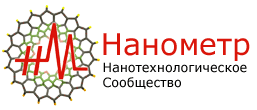Wilhelm and Else Heraeus Seminar "Energy Materials Research by Neutrons and Synchrotron Radiation" will take place in Bad Honnef, Germany, 09.05. - 11.05.2011.
This is an event from Heraeus-Stiftung and HZB. The seminar is funded by the Wilhelm und Else Heraeus-Stiftung.
The goal of the seminar is to bring together young and experienced scientists from universities and from large-scale laboratories and facilities, who are using or planning to use neutrons or synchrotron radiation to study material that are related to energy research. It also aims at bringing together researchers conducting experimental characterization with scientists who have expertise in modeling. The idea of the seminar is to find a common language to describe the big picture behind the seemingly disparate phenomena in the different fields of energy research. The strengths and limitations of the various methods and challenges and opportunities for future neutron and synchrotron radiation sources will be addressed and new directions of applications shall be outlined. This will allow us to develop ideas for future international collaborations for developing and optimizing energy materials and related processes. The infrastructure of large
scale facilities providing neutrons and synchrotron radiation shall be optimized according to the needs of this community and future developments will be pushed forward.
The audience of this workshop is broad and interdisciplinary, where different fields of research are brought together. Therefore, the presentations shall be understandable, where emphasis is put on basic concepts of the fundamental aspects of interaction of synchrotron radiation and neutrons with nuclei with respect to research on energy materials research using neutrons and synchrotron radiation as unique and selective probes. Ample time for discussions is aimed for bridging gaps between the various fields and connecting scientists to define a common ground. This will enhance the close collaboration between international research groups in experiment and theory and will encourage young scientists to choose this area for their scientific careers.
The proposed seminar will bring together different communities working on the outstandingly important subject of energy material research using neutrons or synchrotron radiation and provides an overview of the broad spectrum of applications of both probes with a strong focus on highlighting their complementarity in selected scientific fields, which include:
- Hydrogen and gas storage systems
- Hydrogen/fuel cells
- Catalysis
- New materials for hydrogen production applications
- Solar cells
- Energy storage batteries and fast ionic conductors
Each of these topics is introduced by an overview presentation by a renowned expert in their respective field. In addition the current status and future of photon and neutron sources as well as new and emerging experimental techniques are addressed by key researchers. Important is also theoretical work and modeling of the experimental results. This serves either to deeper understanding of experimental data, or in the prediction of new materials from these data is an important aspect of the sustainable energy field and will also be part of the conference.
In selecting the lecturers care has been taken to include both very experienced and promising younger scientists. The attendees of the seminar, mainly PhD students and post-docs, are encouraged to contribute to the scientific dialogue by presenting their research topics in posters and by giving their questions and remarks preference in the discussion following the lectures.
- M. Weinhold (Siemens Energy): Energy Mix of the Future, Challenges for Research, Industry and Society
- A. Züttel (EMPA, Switzerland): Hydrogen storage, potential and applications
- R. Schlögl (FHI Berlin, Germany): Solid state catalysis
- C. Heske (University of Las Vegas, U.S.A.): Latest developments in solar cell research
- J. Eckert (UC Santa Barbara, U.S.A.): Novel hydrogen storage materials
- C. Buckley (Curtin University of Technology, Australia): Complex hydrates
- A. Braun (EMPA, Switzerland): Structure and transport in Fuel Cells Components
- C. Hartnig (BASF, Germany): Modeling in fuel cell
- J. Sauer (HU Berlin, Germany): Ab initio prediction of adsorption structures and isotherms of H2 and CH4 in microporous systems
- J. Larese (University of Tennessee, U.S.A.): Neutrons , Nanomaterials and Molecular Adsorption
- W. Lehnert (FZ Jülich, Germany): Novel materials for high-temperature fuel cells
- K. Funke (WWU Münster, Germany): Ionic motion in materials with disordered structures
- S. Adams (National University of Singapore): Modeling conduction pathways in ionic conductors
- W. Jaegermann (TU Darmstadt, Germany): In-situ investigation of solar cell materials by synchroton radiation
- L. Peter (Bath, UK): Solar fuel cells
- H. Schober (ILL, Grenoble, France): Neutrons from reactor and spallation sources
- E Weckert (DESY, Hamburg, Germany): Light sources of the 3rd and 4th generation
- M. Karlsson (ESS-Scandinavia, Sweden): Proton conduction studied by neutron scattering
- I. Lauermann (HZB, Germany): Analytics and Optimisation of CIGSE solar cells

